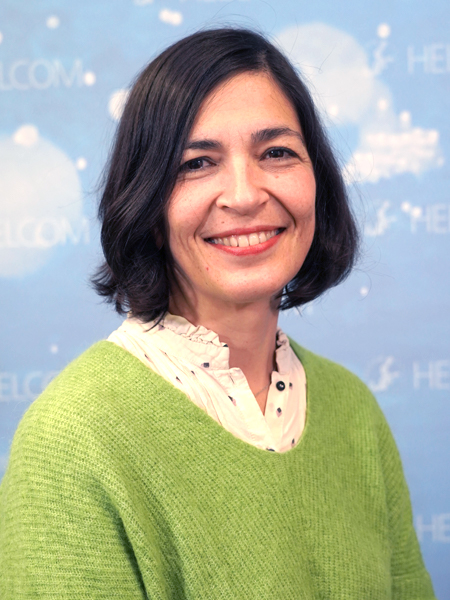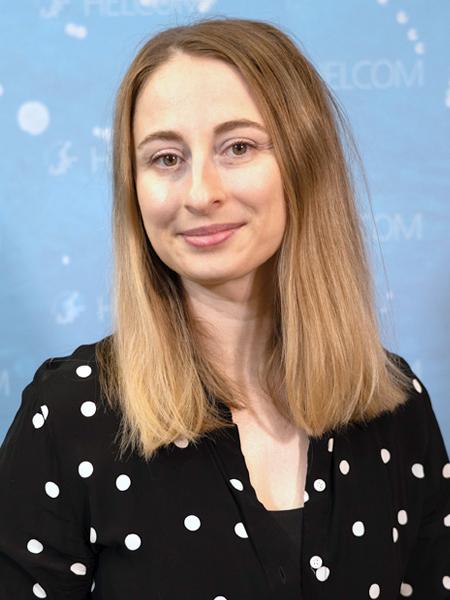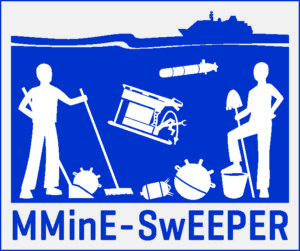MMinE-SwEEPER
Marine Munitions in Europe – Solutions with Economic and Ecological Profits for Efficient Remediation
Background
European marine waters contain warfare material, including conventional and chemical munitions, especially those dumped in the sea after World Wars I and II. Submerged munitions, including unexploded ordnance (UXO), are causing severe environmental impacts in marine ecosystems and are a high risk for human security and marine-based economic sectors.
Submerged munitions present a complex challenge, with diverse responsibilities, remediation methods, and technologies applied across European countries and within the EU. Harmonizing the legal framework across Europe and strengthening international cooperation on management and remediation tools will improve the countries capabilities for munitions clearance, as well as supporting marine ecosystems’ health and safely promote marine-based economic activities.
The MMinE-SwEEPER project aims to advance the knowledge and capabilities for marine munitions clearance in Europe. A consortium of 20 partners, working in collaboration with a diverse community of stakeholders, strives to improve technical approaches, remediation and mitigation assessments, regulation frameworks and training guidelines to strengthen capacity for UXO management in Europe.
Objectives and approach
The project’s main objectives are:
a) Compile existing knowledge across Europe, identify technical and regulations gaps, and provide feasible management recommendations based on the various stakeholder´s needs;
b) Advance robotic applications, 3D imaging and AI-supported data analyses to detect, classify, inspect, assess and neutralize UXO;
c) Improve transnational cooperation in UXO management;
d) Strengthen cooperation between public (government authorities at various levels) and private (marine-based economic sector) partnerships to promote sustainable and cost-effective remediation methods;
e) Enhance knowledge sharing between the government authorities and other stakeholders.
The MMinE-SwEEPER project takes a technical and practical approach, incorporating co-design based on a preliminary study of the needs and concerns of the stakeholder community. This study will guide the project in assessing the likelihood of encountering munition objects in selected areas, conducting risk assessments on identified munitions, and evaluating the type and scope of remediation actions.
Project partners and HELCOM’s role
GEOMAR Helmholtz Center for Ocean Research Kiel (Germany) acts as the project coordinator. Other partners are:
- Fraunhofer Society for the Advancement of Applied Research (FHG-ICT), SeaTerra GmbH, Explosive Ordnance Disposal Service Schleswig-Holstein, Federal Police Germany, north.io GmbH, and Bundeswehr Technical Center for Ships and Naval Weapons, Maritime Technology and Research Germany
- Aarhus University (Denmark)
- Institute of Oceanology of the Polish Academy of Sciences, and The Border Guard Academy in Koszalin (Poland)
- Flanders Marine Institute, Joint Programming Initiative Healthy and Productive Seas and Oceans, and Royal Military Academy Belgium
- University of Tromsø – The Arctic University of Norway, Norwegian Coast Guard, and Norwegian Defence Research Establishment
- French Hydrographic Service
- Cran-U Cranfield University (UK)
- National Research Council of Italy
- IQUA Robotics (Spain)
HELCOM leads the engagement and dialog with a multi-sector stakeholder community and will create a summary of regulations and authorities involved in marine munitions remediation based on end-user needs. HELCOM will collaborate with all partners and project working packages, particularly in communicating and disseminating the project’s goals and outcomes.
Funding information
The project is funded through HORIZON Research and Innovation Actions funded by the European Research Executive Agency (European Commission). Total grant is 5 916 095.56 €
Project duration
42 months (October 2024 — March 2028)
Links
Subscribe to the MMinE-SwEEPER newsletter (managed by JPI Oceans) here.




